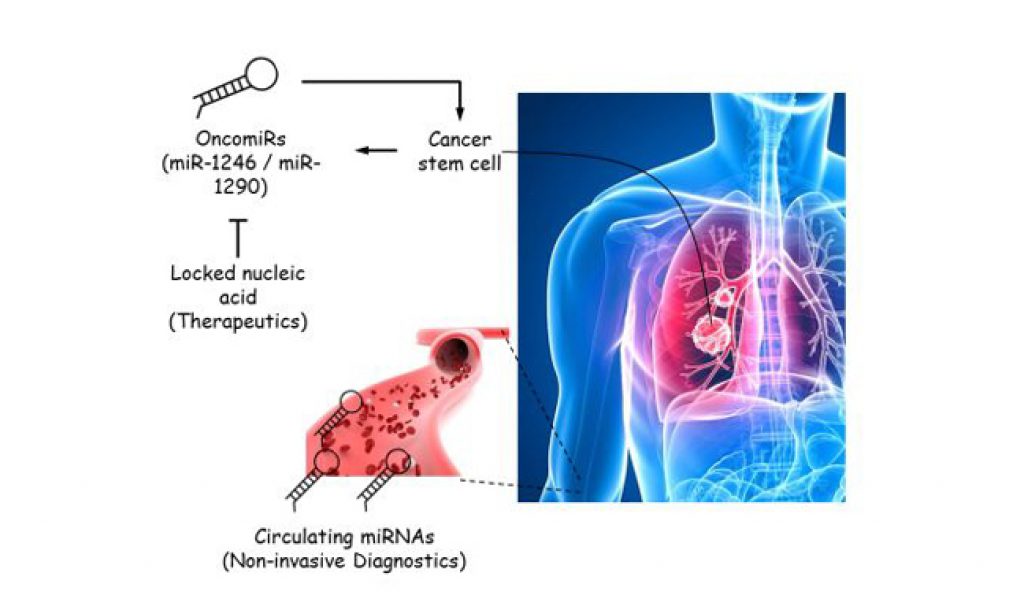
AsianScientist (Jul. 13, 2016) – Researchers from Singapore have discovered a class of small RNA molecules, known as oncomiRs, which is responsible for fueling lung cancer. Published in Nature Communications, the findings provide fresh insights into understanding therapy resistance in lung cancer and unveil new avenues to monitor and treat the disease more effectively.
Rare cancer stem cells within tumors are resistant to conventional therapies, making them the major culprits for relapse in lung cancer patients. As oncomiRs are the main drivers of these cancer stem cells, administering therapies that obliterate the oncomiRs opens up possibilities to kill the cancer stem cells.
The study, jointly led by Drs. Lim Bing and Tam Wai Leong from A*STAR’s Genome Institute of Singapore (GIS), identified two oncomiRs, miR-1246 and miR-1290, as crucial drivers for tumor initiation and cancer progression in human non-small cell lung cancer.
In mice studies, they showed that a new class of therapeutic called locked nucleic acid were able to shrink human lung tumors. The locked nucleic acid therapy was directed against the oncomiRs they discovered.
Finally, they were also able to detect the oncomiRs in patients’ blood by taking liquid biopsies, which are minimally invasive and less time-consuming compared to tissue biopsies. They showed that the oncomiR levels were indicative of whether patients would respond well to conventional therapies or succumb to the disease.
“We are interested in developing this detection method into a companion diagnostic that can improve disease tracking and provide real-time information on tumor progression,” said Tam.
The article can be found at: Zhang et al. (2016) Tumor-Initiating Cell-Specific miR-1246 and miR-1290 Expression Converge to Promote Non-Small Cell Lung Cancer Progression.
———
Source: Genome Institute of Singapore.
Disclaimer: This article does not necessarily reflect the views of AsianScientist or its staff.












